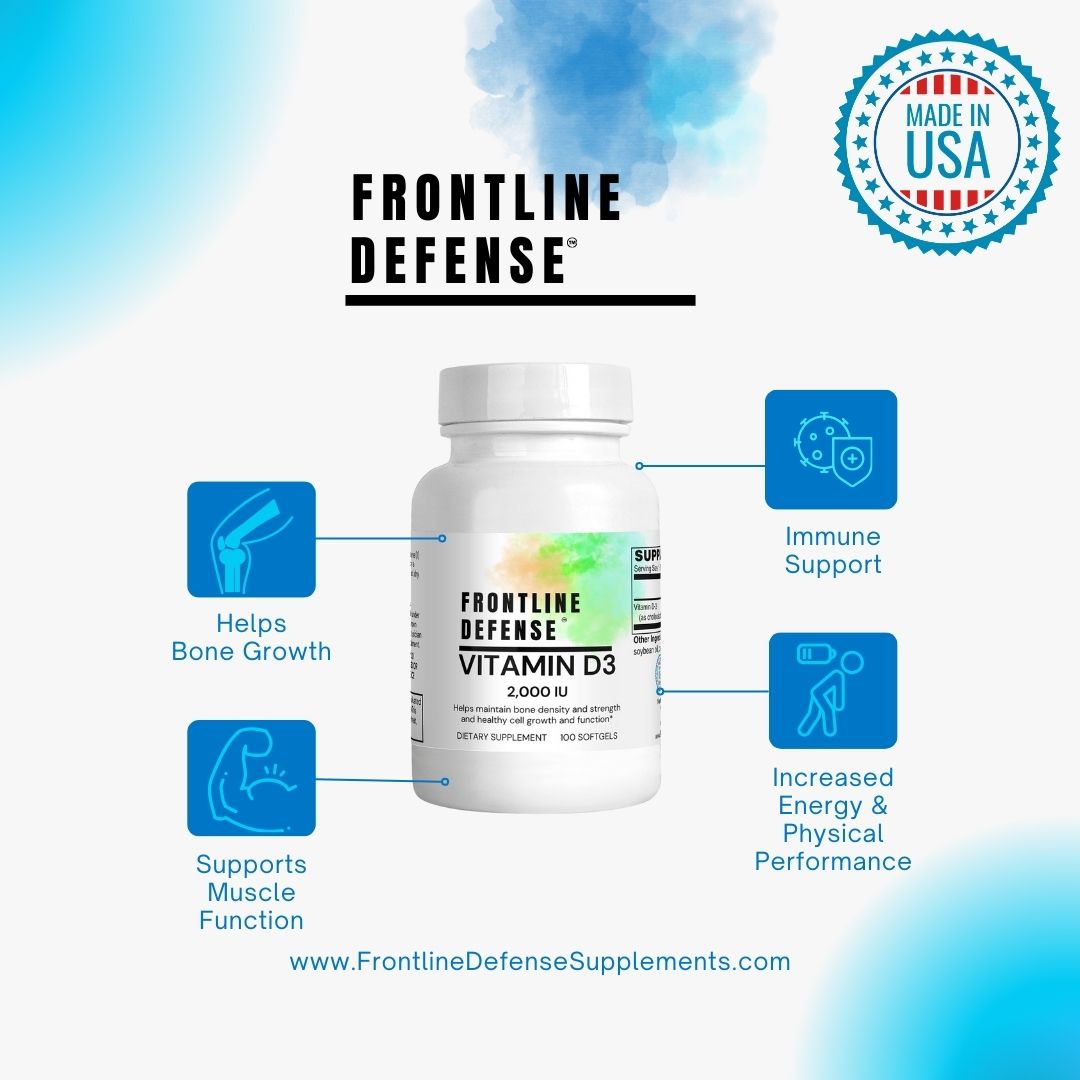In the quest for optimal health, Vitamin D3 often stands out as a vital component in maintaining overall well-being. Known as the "sunshine vitamin" due to its natural synthesis in the skin from sunlight exposure, Vitamin D3 plays a crucial role in various bodily functions. Let’s explore how this essential nutrient contributes to both physical health and mental wellness.
What is Vitamin D3?
Vitamin D3, also known as cholecalciferol, is one of the two main forms of Vitamin D— the other being Vitamin D2. D3 is derived from animal sources and is the most effective form in raising and maintaining optimal Vitamin D levels in the blood. It’s naturally produced in the skin when exposed to sunlight and is also available through dietary supplements.
Health Benefits of Vitamin D3
-
Bone Health: One of the primary functions of Vitamin D3 is to regulate calcium and phosphorus in the body. This regulation is vital for maintaining strong and healthy bones. Adequate Vitamin D3 levels help prevent bone disorders such as osteoporosis and rickets.
-
Immune System Support: Vitamin D3 enhances the pathogen-fighting effects of monocytes and macrophages—white blood cells that are part of the immune system. By boosting immune responses, it helps the body defend against infections and diseases.
-
Cardiovascular Health: Studies suggest that Vitamin D3 supports heart health by helping to regulate blood pressure and reduce inflammation. This can potentially lower the risk of heart disease and improve cardiovascular function.
-
Muscle Function: Adequate Vitamin D3 levels are associated with improved muscle strength and function. This is particularly important for older adults, as muscle weakness can lead to falls and fractures.
Mental Health Benefits of Vitamin D3
-
Mood Regulation: Vitamin D3 has been linked to mood regulation and emotional well-being. Low levels of Vitamin D3 have been associated with increased risks of depression and mood disorders. Ensuring sufficient Vitamin D3 intake can help stabilize mood and contribute to a more positive outlook.
-
Cognitive Function: Research indicates that Vitamin D3 plays a role in cognitive health. It may help protect against cognitive decline and support brain function, making it a valuable nutrient for maintaining mental sharpness and cognitive abilities.
-
Reduced Risk of Depression: Some studies have found a correlation between low Vitamin D3 levels and a higher incidence of depressive symptoms. Supplementing with Vitamin D3 can help alleviate symptoms of depression and support overall mental health.
Incorporating Vitamin D3 into Your Routine
For those who may not get enough sunlight or have dietary restrictions, Vitamin D3 supplements can be a valuable addition to your health regimen. Frontline Defense Supplements offers high-quality Vitamin D3 supplements designed to support your health and mental well-being.
Whether you’re looking to enhance bone health, boost your immune system, or improve your mood and cognitive function, Vitamin D3 is a versatile nutrient that can make a significant difference.
Vitamin D3 is more than just a supplement; it’s a key player in maintaining both physical and mental health. By ensuring you get enough Vitamin D3, you’re investing in your overall well-being and supporting your body’s ability to function optimally. Explore the benefits of Vitamin D3 with Frontline Defense Supplements and take a proactive step towards a healthier, happier you.
References
-
National Institutes of Health (NIH) – Office of Dietary Supplements
-
"Vitamin D." National Institutes of Health. Available at: https://ods.od.nih.gov/factsheets/VitaminD-HealthProfessional/
-
Provides detailed information on the role, benefits, and sources of Vitamin D.
-
-
Harvard T.H. Chan School of Public Health
-
"The Nutrition Source – Vitamin D." Harvard T.H. Chan School of Public Health. Available at: https://www.hsph.harvard.edu/nutritionsource/vitamin-d/
-
-
Mayo Clinic
-
"Vitamin D Deficiency." Mayo Clinic. Available at: https://www.mayoclinic.org/symptoms/vitamin-d-deficiency/basics/definition/sym-20050965
-
-
American Psychiatric Association
-
"Vitamin D and Mental Health." American Psychiatric Association. Available at: https://www.psychiatry.org/newsroom/news-releases/vitamin-d-and-mental-health
-
-
National Center for Biotechnology Information (NCBI) – PubMed Central
-
"The Role of Vitamin D in Cognitive Function and Dementia." PubMed Central. Available at: https://www.ncbi.nlm.nih.gov/pmc/articles/PMC5907134/
-

